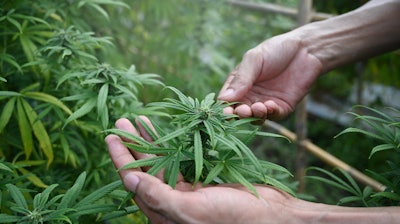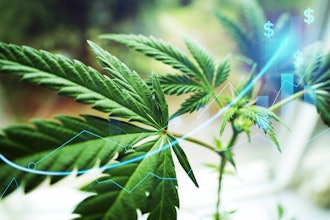
The Texas Hemp Business Council (THBC), a non-profit trade association focused on advancing and protecting hemp-derived products in the Lone Star state, today announced that its members will be among those present at the Texas Capitol on May 29 to present the case for keeping Delta-8 and Delta-9 products legal in Texas.
“Any bans or excessive legislation of hemp-derived cannabinoids as suggested by Lieutenant Governor Dan Patrick and others will negatively impact an industry that has an $8 billion economic impact, pays $1.6 billion in annual wages, and supports more than 50,000 workers,” said Lukas Gilkey, CEO and co-founder of Hometown Hero, THBC’s founding member, who will be among those delivering testimony in front of the Texas Senate Committee on State Affairs. “Millions of Americans, including an ever-growing number of veterans, many whom live here in our home state, choose these products as part of their daily lifestyles, while others may rely on them as alternatives to marijuana, opioids, and other pharmaceuticals.”
Current law already regulates hemp products in Texas, which includes full panel testing for all consumable cannabinoids, as well as licensing and labeling requirements. Certificates of analysis are also required to be available to every consumer.
As part of its “Don’t Mess with Hemp” campaign, the THBC has outlined the following ten reasons that convey the positive economic and social impact of hemp-derived cannabinoids in Texas:
- Sales of hemp-derived cannabinoids in Texas generate more than $8 billion annually.
- Between $19.1 and $22.4 billion in economic activity is generated by the local hemp-derived cannabinoid retail, manufacturing and wholesale sectors.
- The hemp industry pays upwards of $1.6 billion in annual worker wages.
- The hemp sector has created or expanded more than 5,000 businesses in the state.
- More than 750 licensed Texan farmers cultivate up to 3,300 acres of hemp for the state and throughout the U.S.
- Hemp is legal on a federal level and in many states including Texas, according to the Agriculture Improvement Act of 2018 (aka Farm Bill).
- Consumable hemp products have been successfully regulated in the state since 2019, when HB 1325 was passed into law.
- An increasing number of veterans use hemp products daily as alternatives to opioids to treat issues such as chronic pain, traumatic brain injuries and PTSD.
- Hemp-derived Delta-8 cannabinoids have been in the marketplace for many years without incident and do not present public health and safety risks like those from alcohol and tobacco.
- Millions of adults have used CBD and hemp-derived cannabinoids for various purposes, including enhancing wellness, improving lifestyle, and alleviating pain, stress and anxiety.
“Our message to lawmakers is simple: Please don’t mess with hemp,” added Gilkey. “Prohibition will only put consumers at risk due to an illicit market, and the economic damage in terms of business failures, job losses and adjacent economic activity to Texas would be too great. We are fully committed to continuing the fight here in Texas to ensure the future success of the hemp industry.”
The public hearing by the Texas Senate Committee on State Affairs to examine the sale of hemp products in Texas, among other topics such as maintaining election security and protecting land and assets, will occur on May 29 at 9 a.m. at the Capitol Extension, Room E1.012.






















